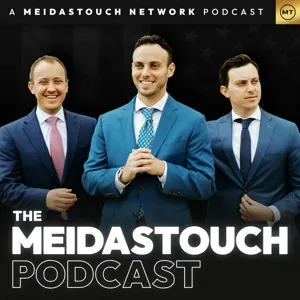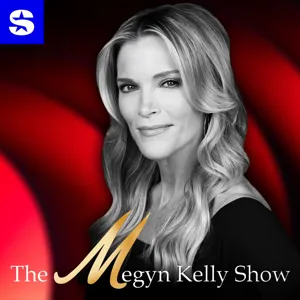Podcast Summary
Biggest bank failure since 2008 leads to government intervention: Unforeseen financial instability can result in significant bank failures and government interventions, emphasizing the importance of having a reliable insurance plan and staying informed.
The banking sector experienced significant turmoil last week, resulting in the biggest bank failure and most aggressive bank rescue since the 2008 global financial crisis. Silicon Valley Bank, a preferred institution for many startups, faced uncertainty due to financial instability, leading to a massive bank run and the withdrawal of $42 billion in a single day. The government intervened, guaranteeing full repayment to depositors and providing credit lines to other banks to prevent further instability. This event serves as a reminder of the inherent instability in the banking industry and the potential consequences of financial uncertainty. It's crucial for individuals and businesses to have a reliable insurance plan, such as those offered by State Farm, to protect against unforeseen events. Additionally, it's essential to stay informed about emerging trends and recommendations, like those provided by Pop Culture Happy Hour, to help navigate the complex world of finance and pop culture.
Silicon Valley Bank's Collapse: Industry Specialization and Low-Interest-Rates: Banks specializing in niche industries and experiencing rapid growth in a low-interest-rate environment face challenges in finding suitable long-term investments, leading to riskier choices and potential financial instability.
Silicon Valley Bank's collapse was largely due to the unique industry it catered to and the low-interest-rate environment that fueled its growth. The bank specialized in serving the venture capital community and tech startups, which experienced massive growth in the past decade. As a result, deposits at the bank tripled between 2019 and 2021, leaving the bank with a large amount of cash to invest. However, the bank struggled to find suitable long-term investments for this cash, leading to riskier investments and eventual financial instability. This case highlights the inherent fragility of banks and the risks associated with rapid growth in specific industries.
Banking on Risk: Misjudging It Can Lead to Crisis: Misjudging risk can lead to significant consequences for a bank, including loss of customer trust and potential bank runs.
Managing risk is a crucial aspect of banking, and misjudging it can lead to significant consequences. Silicon Valley Bank faced this reality when both its investments and customer base were negatively impacted by rising interest rates. The bank's failure to hedge its risk, driven by the desire to maximize profits, ultimately led to its downfall. However, the customers' loss of trust played a significant role in amplifying the situation into a full-blown crisis. In a tight-knit community like the tech industry, a bank run could spread rapidly through group communication channels. Trust is essential for a bank's stability, and its absence can lead to a fragile institution.
Bank runs in the digital age: Bank runs can't be contained by physical boundaries, and the recent Silicon Valley Bank incident highlights the need to create confidence in the financial system and assure depositors their money is safe, despite limitations of deposit insurance for larger depositors.
In today's digital age, bank runs can no longer be contained by physical boundaries. The recent incident with Silicon Valley Bank, where customers withdrew $42 billion in a single day, demonstrates this. Once a bank run starts, it's often too late to prevent it. To prevent bank runs, it's crucial to create confidence in the financial system and assure depositors that their money is safe. This was achieved during the Great Depression through deposit insurance, which covers depositors up to $250,000. However, the Silicon Valley Bank situation revealed a problem: many of the depositors had more than $250,000 parked in the bank, and their uninsured funds made them vulnerable. This created an incentive for them to join the bank run, as they had a lot to lose. The tension lies in the fact that we want larger depositors to monitor the banks, but we don't want to protect them with deposit insurance due to moral hazard concerns. However, when a bank fails and people lose money, fear about the financial system can spread rapidly. In essence, the system we have is flawed, and it's unrealistic to expect every business owner to be an expert in banking. The theory goes out the window when people actually lose money.
The fragility of banks and the importance of regulation: Regulators must maintain a watchful eye on financial institutions to prevent potential risks and instability, especially before trouble starts.
Despite the existence of regulations in the banking industry, particularly the Dodd-Frank Act, the collapse of Silicon Valley Bank serves as a reminder of the fragility of banks and the importance of robust regulation. After the financial crisis in 2008, Congress passed the Dodd-Frank Act, which established new regulations for banks above a certain size. However, large banking institutions lobbied to scale back these regulations, and the threshold for what counted as a big bank was proposed to be increased from $50 billion to $250 billion. Silicon Valley Bank CEO Greg Becker was among those advocating for this change. The discussion highlights the ongoing debate over the balance between regulation and innovation in the banking sector. It's crucial that regulators maintain a watchful eye on financial institutions to prevent potential risks and instability, especially before trouble starts.
Debate over deregulation vs enhanced regulations for banks: Regulations vs deregulation in banking: a balance between profitability and safety is crucial
The debate between deregulation and enhanced regulations for banks, as exemplified by the case of Silicon Valley Bank, is a complex issue with valid arguments on both sides. In 2015, the bank argued against new regulations, stating they were already effective risk managers and that regulations would harm the innovation economy. Conversely, in 2017, there were concerns that banks were pushing for deregulation to increase profits and take bigger risks with customers' money. In the end, lawmakers rolled back Dodd-Frank, and while Silicon Valley Bank didn't meet the new definition of a large bank, it raises questions about whether the bank would have collapsed under stricter regulations. Regulators argue that these regulations would have made banks more careful and less likely to take on risky behavior, potentially preventing bank failures. Ultimately, the debate underscores the importance of striking a balance between profitability and safety in the banking industry.
Banking Crisis: A Triangle of Failures: The government's decision to rescue depositors in a banking crisis highlights the importance of maintaining public perception of financial stability, even if it means investors and shareholders face losses.
Last weekend's banking crisis at Silicon Valley Bank was a result of a combination of failures from bankers, customers, and regulators. When a bank gets into a precarious position, the government must decide whether to act as a regulator or a rescuer. In this case, the government chose to rescue depositors, ensuring they got all their money back, while investors and shareholders may face significant losses. The Fed also created a new loan program to help banks that had taken similar risks. The Fed's actions underscore the importance of perceptions in banking, as people's perceptions about a bank's stability can significantly impact its reality. The government's generous rescue plan aims to maintain the perception that the banking system is stable and secure, despite the underlying realities.
Access local, national, and global news with NPR app: Stay informed with NPR app, offering news coverage without paywalls or distractions, and explore walkable cities insights with TED Radio Hour, while cooking inspiration awaits on Here and Now podcast
Staying informed doesn't have to be a struggle. With the NPR app, you have access to local, national, and global news coverage without any paywalls, profits, or unnecessary distractions. This is especially important in today's fast-paced world where news is constantly vying for our attention. Meanwhile, on the TED Radio Hour, urban planner Jeff Speck shares insights on how cities can become more walkable. This is a topic of great interest to business leaders in red cities like Grand Rapids and Oklahoma City, who recognize the importance of walkability in making their cities more desirable. Lastly, if you're looking for new recipes and cooking inspiration, check out the Here and Now anytime podcast from NPR and WBUR. It takes a serious approach to cooking and chefs, just like it does to the news. So, the next time you're in the kitchen, refresh your recipe book and spice up your playlists with this engaging podcast.






